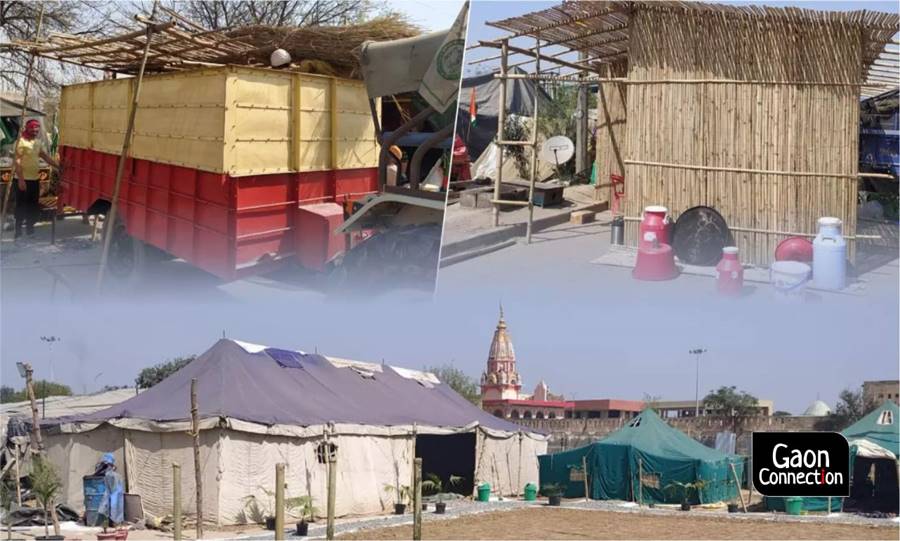New Delhi
Having faced Delhi’s winters while protesting the three farm laws, the agitating farmers, who have been at the borders of the national capital for more than 100 days now, are presently equipping themselves to face the blaze of the north Indian summer.
From ventilated tents to cooling roofs made of straw, the protestors are taking measures to ensure that summer months from April to June don’t weaken the stir. The protesters are also distributing mosquito nets to prevent anyone falling ill from mosquito bites.

Delhi always records extreme temperatures — bone chilling cold in the winters and scorching summer heat. In such conditions, being out in the open can be dangerous for the elderly farmers who have gathered in strength. Heat strokes are common in the summer. However, the farmers are determined to make the Central government led by Prime Minister Narendra Modi repeal the three laws.
In summers, asphalt roads can get unbearably hot. And, the roads are where the protests are on, in Tikri, Singhu, Ghazipur and Shahjahanpur. To keep the surface from getting very hot, farmers have started using foam mattresses.
Apart from this, farmers have brought in small fans and coolers to provide some respite from the heat. Farmer Kuldeep Singh, 24, from Punjab is at the protest site along with his 30 other people. He is converting tractor trolleys into temporary huts with a roof of straw. “We will cover the trolley with bamboo and straw. This will prevent sunlight from entering the hut. We will also install a refrigerator, cooler, fan and an inverter inside,” he told Gaon Connection.

Singh will assemble at least five such trolleys — it costs around Rs 20,000 and two days of work to convert a single trolley. To raise finances for this, Singh has conducted crowd-funding campaigns across villages and cities.
A borewell has been dug to ensure water supply at the protest site in Tikri. The protesters get their power from roadside electricity poles. Farmers have built a boundary wall around the roads to construct a garden with various ornamental plants. There are even seats to sit on.
At Tikri, the ‘Kisaan Haweli’ or farmers’ mansion is grabbing the eyeballs of the media as well as the people in and around the border localities. The site chosen for the building used to be a garbage dump. There are 15 tents here now, and they have been placed at a height from the ground, so that water does not enter the tents in case of flooding.
Sumit Badak, 21, is preparing for selection to the armed forces, and has come to the protest site from Haryana’s Rohtak to offer sugarcane juice to the protesters. “We brought three machines from Rohtak. It is summer and the temperatures are soaring every passing day. We will serve fresh sugarcane juice to the farmers,” Badak told Gaon Connection.
Apart from these, cold beverages such as milk shake and buttermilk are being distributed amongst farmers.
Also Read: We will starve but not go back without the laws being repealed, say protesting women farmers
According to data compiled by the Samyukta Kisan Morcha, the farmers’ organisation leading the protests at the Singhu border near the national capital, at least 248 farmers have lost their lives at the protests, which started on November 26, last year.


















